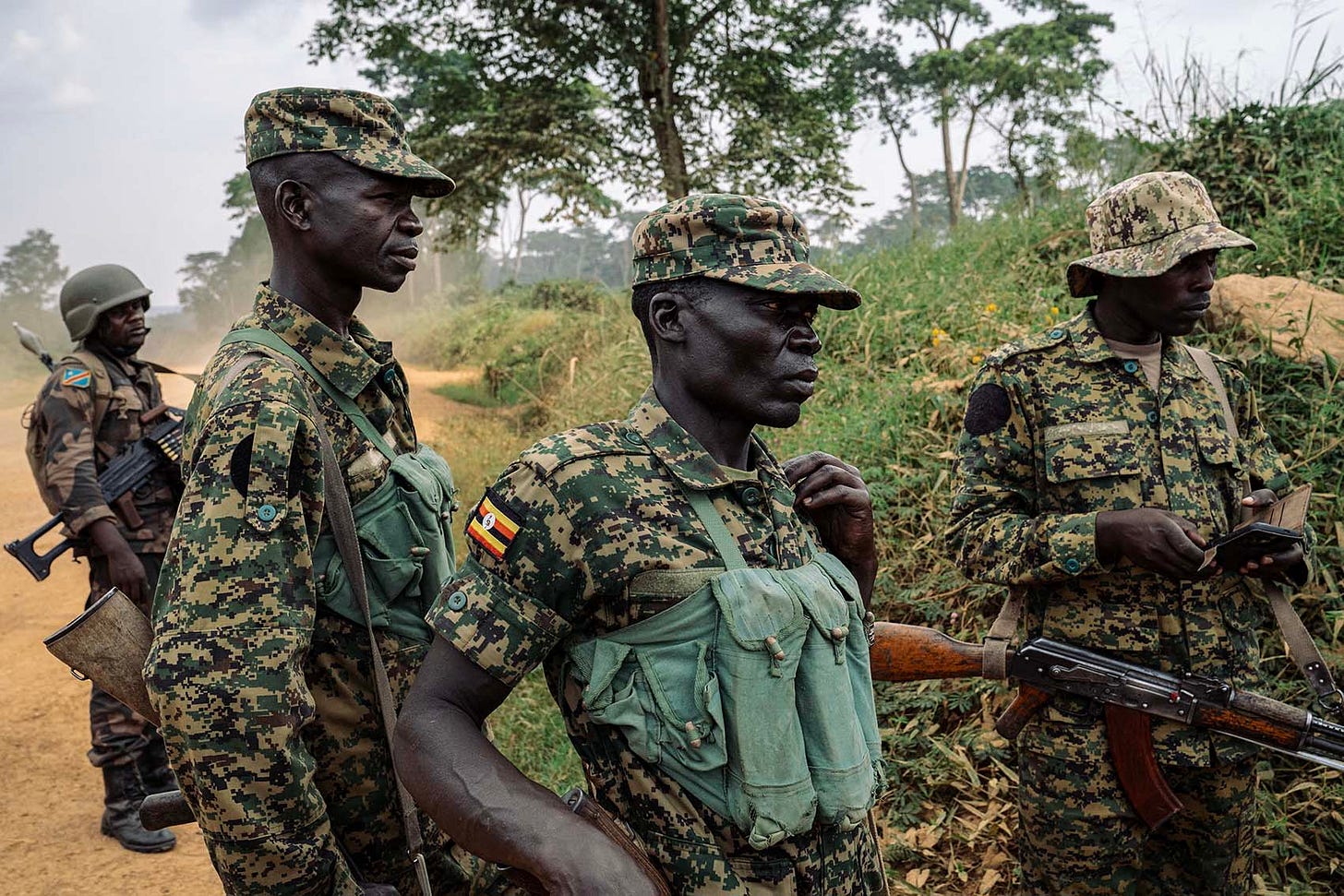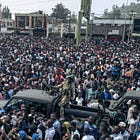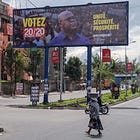Uganda (officially) moves its troops into Congolese towns
The country has interfered in its resource-rich neighbour for decades, both on the side of rebels and the government.
Prosper Heri Ngorora

Last Thursday, a column of armoured vehicles, trucks and 4x4 pickups from the Ugandan army entered the towns of Tchomia and Kasenyi in the Ituri province of the Democratic Republic of Congo.
On his X account, a Ugandan military spokesperson tweeted: “We occupied it [Kasenyi] and Chomia to prevent inter-ethnic fighting and to protect the population.”
That word “occupied” set tongues wagging.
Ituri is just north of the two Kivu provinces that M23 rebels occupied in January and February. While Ugandan troops are operating there with permission from the DRC government in Kinshasa, many Congolese people, activists and politicians still view them through the lens of their previous activities in the country: occupation to plunder.
Between 1998 and 2003, Uganda and Rwanda fought against DRC troops in the east in a war that drew in five other African countries.
Following the war, the International Court of Justice found Uganda guilty of many crimes including killing and torturing civilians, recruiting child soldiers, looting gold, wood and other natural resources, and violating the international law principle of non-intervention with other sovereign states.
Uganda is still paying court-ordered reparations to the DRC of $325-million.
A senior Congolese army officer who requested anonymity told The Continent that DRC and Uganda army chiefs of staff met on Wednesday in Aru, Ituri to review joint military operations.
“Curiously, it’s the same army that is being brought in to supposedly help our army fight the militiamen,” says Luc Malembe, a Congolese politician living in Bunia, Ituri. He is one of many Congolese politicians, activists and residents who have been suspicious of Uganda’s new activities there, especially with the resurgence of the M23 rebels with Rwanda’s support.
“I have always said that Uganda has two different units in our country. There is a unit that is with the M23, and a unit that says it is working with our armed forces in Beni, Mahagi, Bunia, Djugu and Mambasa,” says Malembe.
Yet, even a potentially doubleedged ally can seem better than the hundreds of other armed groups in the region.
“For some time now, there has been a degree of calm, even among certain local armed groups who used to frequently attack the population because we don’t have enough Congolese army personnel here in Ituri,” says Dieudonné Lossa Dhekana, a civil society activist in Ituri province.
“Uganda has supported several armed groups in the DRC for a long time, including the current M23, according to information I have heard on the radio. Perhaps the fact that the UPDF [Uganda’s army] is officially present in the country may change its intentions on our territory,” says Irene Zawadi, a resident of Bunia.
Speaking to The Continent this week, Felix Kulayigye, the top Ugandan army spokesperson, urged that “people should not worry about words.” He added, “The most important thing is action. We are not in the Congo forever.”
But the people in eastern DRC have seen many actions in the last decades. And all of them matter.





